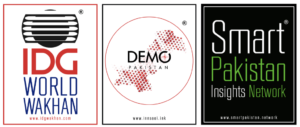Artificial intelligence is increasingly being used to solve real-world challenges beyond content generation and image editing, and three Pakistani women graduating from Mohamed bin Zayed University of Artificial Intelligence (MBZUAI) in Abu Dhabi are proving how impactful the technology can be when applied to healthcare and education. The UAE-funded university focuses exclusively on graduate-level AI education and research, and this year, it hosted the work of Tooba Tehreem Sheikh, Ashba Sameed, and Fatimah Lyba Khan—each contributing meaningful tools aimed at making technology more inclusive and effective in their respective fields.
Tooba Tehreem Sheikh, 23, has been working on AI models for medical imaging, driven by personal loss and a commitment to improve diagnostic systems in under-resourced settings. After studying software engineering in Pakistan, she joined MBZUAI to pursue computer vision research. Her projects include IHA-YOLO, a lightweight real-time detection tool for cells, and Med-YOLOWorld, which expands detection capabilities across nine medical imaging types. These tools are designed to run on existing hospital infrastructure, which Sheikh said makes them scalable and cost-effective for facilities in Pakistan. IHA-YOLO identifies known disease patterns while Med-YOLOWorld uses open-vocabulary AI to detect unfamiliar or unclassified anomalies. Both tools process imaging like X-rays, CT scans, MRIs, and colonoscopy footage to assist doctors in early and accurate diagnosis. She acknowledged that issues like data confidentiality need to be handled with care, especially when AI systems rely on sensitive patient data. Sheikh aims to return to Pakistan to establish a hospital that incorporates AI-based diagnostics.
Ashba Sameed, 27, focused her research on improving how AI systems process and connect spoken language with written text. Based in Karachi before joining MBZUAI, Sameed explored multilingual voice models like Spirit LM and Mini-Omni to evaluate their ability to summarise, translate, and answer questions using both audio and text inputs. She found that Spirit LM excelled in understanding emotional tone, while Mini-Omni performed well in instruction-based tasks. Her work is especially valuable for countries like Pakistan where literacy rates vary and many users speak regional languages. By enhancing the capacity of voice-based systems, her research can support the development of tools such as smart helplines and local-language digital assistants that expand access to services. Sameed stressed the importance of using representative data to ensure model effectiveness in target geographies, noting that mismatched datasets could lead to poor outcomes for local users.
Fatimah Lyba Khan, 26, focused on making scientific knowledge more accessible through her project SciGrade, an AI-powered system that simplifies complex scientific text across education levels. After completing her degree in electrical engineering in Lahore, Khan joined MBZUAI to study natural language processing. SciGrade adapts scientific material across 10 disciplines into five grade bands, from early education to university level, while maintaining factual accuracy. It alters tone, vocabulary, and structure to suit learners’ needs, making scientific content more digestible for students and adult learners alike. She developed prompt designs to ensure that simplification didn’t compromise scientific precision and plans to expand the tool into other languages like Arabic to further enhance access in multilingual contexts.
The work of these researchers highlights the growing role of AI in creating tools that are inclusive, resource-efficient, and grounded in real-world needs. From diagnostics to language access and educational transformation, these projects reflect how targeted AI applications can create meaningful impact in regions with infrastructural constraints.



